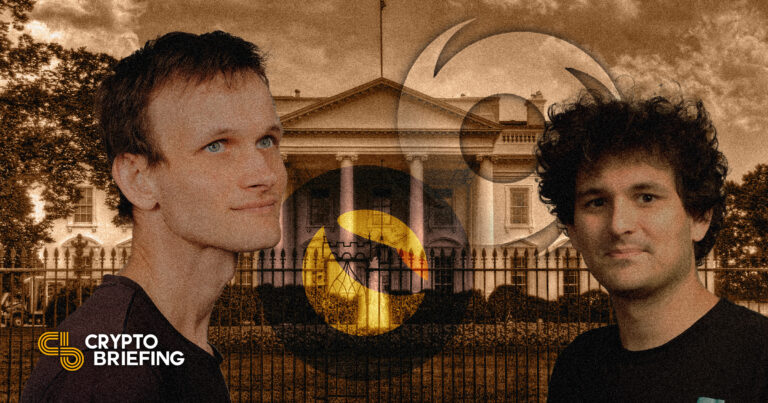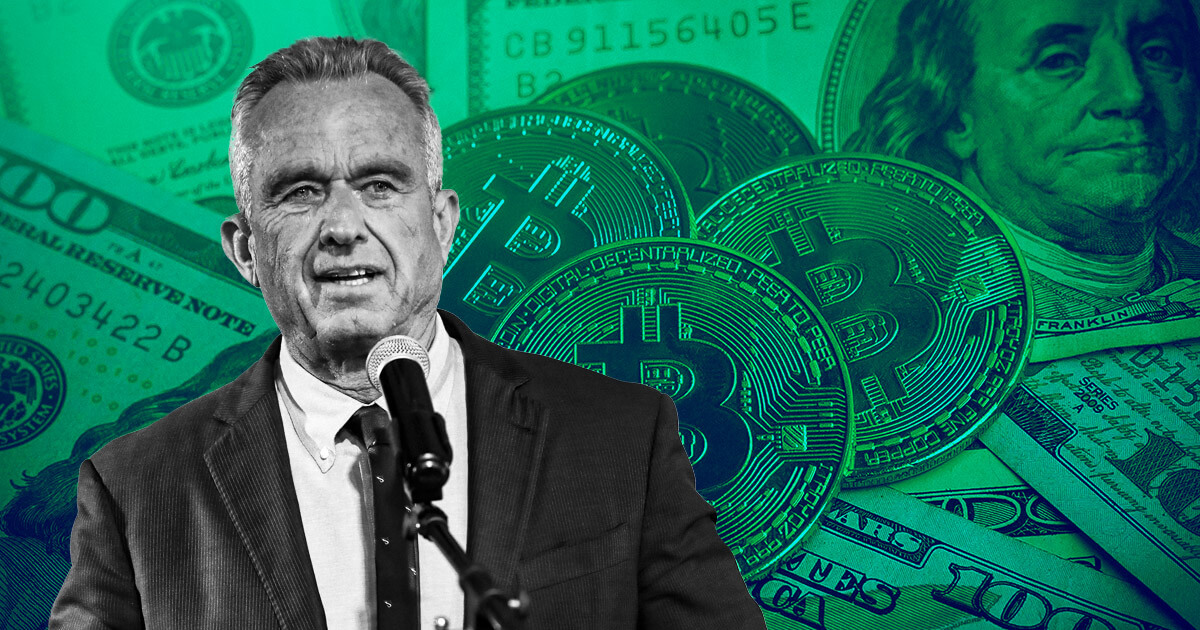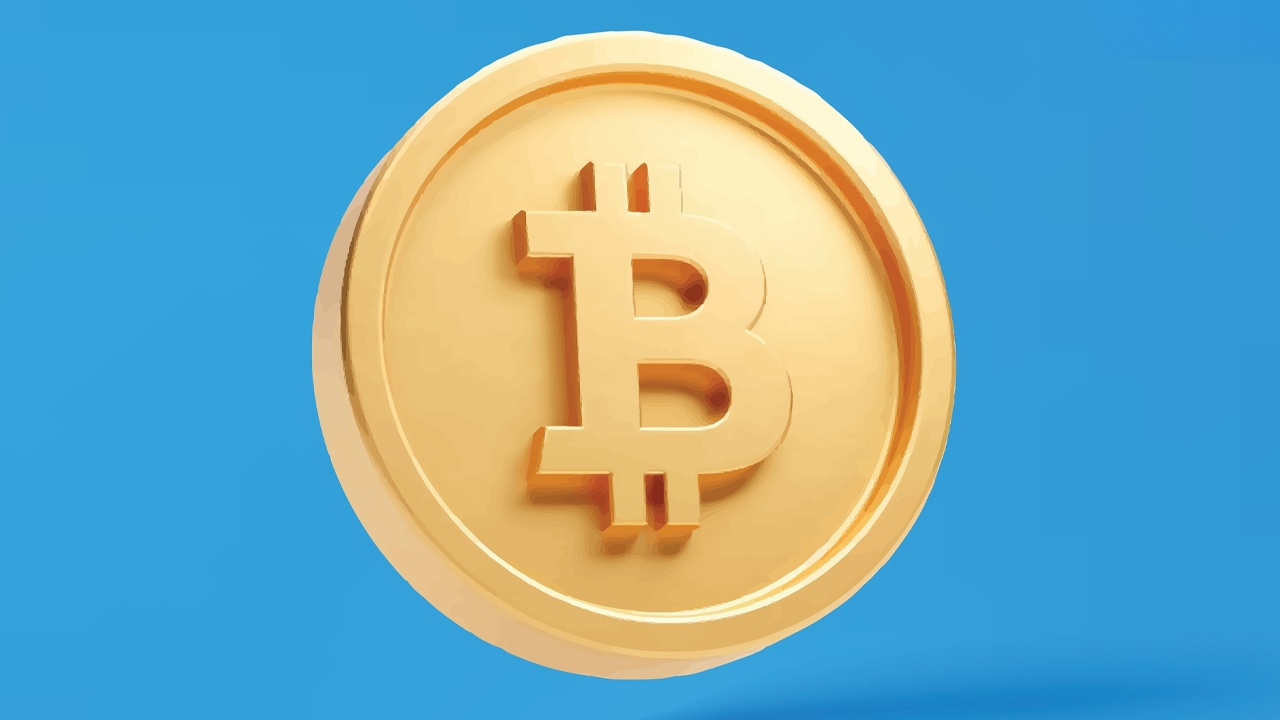Key Takeaways
The crypto ecosystem shed $2 trillion in market worth and misplaced a number of main gamers in 2022, nevertheless it didn’t die.
Terra, Three Arrows Capital, FTX, and a bunch of different large entities suffered wipeouts that characterised crypto’s turbulent 12 months.
Ethereum additionally accomplished “the Merge” to Proof-of-Stake after years of anticipation.
Share this text
From crypto struggle reduction to multi-million greenback hacks and industry-shaking blowups, 2022 was one other eventful 12 months for the digital property area.
The Crypto Moments of the Yr
Should you requested the typical individual on the road to sum up 2022 in crypto, there’s likelihood they’d inform you this was the 12 months the expertise died. Hundreds of traders who got here in drunk on bull market euphoria final 12 months vowed to go away the area perpetually in 2022 because the hangover kicked in, however there have been a number of diehards who caught round.
For individuals who did, this was hardly a quiet 12 months. Positive, our cash tanked in greenback worth this 12 months because the {industry} suffered a $2 trillion rout, however there have been loads of main occasions to maintain us entertained. Or if not entertained, a minimum of occupied.
As is typical of bear markets, a few of the landmark occasions of the 12 months had been additionally a few of the most catastrophic. And few would argue that 2022 was certainly one of crypto’s most catastrophic years but. We watched in shock as Terra, Three Arrows Capital, and FTX fell like dominoes just a few months aside. Folks suffered staggering losses and it felt just like the {industry} was set again by years.
Nonetheless, 2022 gave us a number of optimistic developments. Ethereum had 12 months regardless of ETH’s weak value efficiency as “the Merge” lastly shipped. We additionally noticed governments worldwide acknowledge crypto’s potential towards a backdrop of struggle and hovering inflation.
2022 was certainly one of crypto’s rockiest years ever, however the {industry} survived. Throughout crypto’s final bear market, there was a query of whether or not the ecosystem would pull via. In 2022, these watching the area closest don’t have any doubts that crypto is right here to remain. And never simply right here to remain, however after the occasions of this 12 months, the foundations needs to be stronger than ever in 2023 and past.
For now, although, the {industry} continues to be reflecting on what was—by all accounts—a memorable, if not totally optimistic, 12 months for the crypto ecosystem. Right here had been the ten most essential moments.
Canada Freezes Freedom Convoy Funds
The primary main crypto occasion of 2022 didn’t happen on-chain, and even on-line, however in Ottawa, the capital metropolis of Canada. On January 22, tons of of Canadian truckers departed from numerous components of the nation to start congregating at Parliament Hill to protest towards COVID-19 vaccine mandates and restrictions. Because the authorities refused to barter with them, the so-called “Freedom Convoy” took management of the streets. Legislation enforcement struggled to take away the protestors because of the dimension of the convoy and autos.
On February 14, in response to the protests, Prime Minister Justin Trudeau invoked the Emergencies Act, which quickly offers the federal government extraordinary powers to answer public order emergencies. The Trudeau administration then ordered Canadian monetary establishments to freeze the financial institution accounts of protesters—in addition to anybody supporting them via donations—in a bid to chop their funding. Undeterred, the demonstrators switched to crypto, which led Canadian authorities to blacklist a minimum of 34 totally different crypto wallets linked to the Freedom Convoy. Shortly thereafter, a joint police power forcefully eliminated the truckers from the streets; by February 20, Ottawa’s downtown space was utterly cleared.
For the crypto area, the Ottawa protests confirmed the convenience with which even Western democracies might weaponize their monetary sectors towards their very own residents. In that context, Bitcoin’s mission got here to the fore. Crypto lovers identified that Bitcoin provides a permissionless, censorship-resistant, worldwide fee system as an alternative choice to state-controlled banking networks. For all their faults, decentralized cryptocurrencies supply an important assure: your cash actually is your individual, and nobody can cease you from utilizing it. As Arthur Hayes wrote in a March Medium put up, in case you’re solely counting on the standard banking sector, “you would possibly suppose you’ve got a web price of $100, but when the financial institution or authorities for no matter cause decides you may now not entry the digital community, your web price turns into $0.” Tom Carreras
Ukraine Begins Accepting Crypto Donations
The Russia-Ukraine battle had a serious impression on international markets this 12 months, crypto included. The market plunged as President Vladimir Putin ordered the Russian army to invade Ukraine, however the struggle grew to become the primary that noticed crypto take middle stage.
Inside days of the invasion, the Ukrainian authorities’s official Twitter account put out a put up requesting Bitcoin and Ethereum donations with two pockets addresses included. The tweet instantly sparked confusion, with Vitalik Buterin weighing in to warn those that the account might have been hacked.
However the authorities’s Ministry of Digital Transformation promptly confirmed that the request was, in reality, legit. The Ukrainian authorities actually was asking for crypto to fund its struggle reduction efforts.
Donations flooded in, and inside three days the federal government had raised over $30 million price of BTC, ETH, DOT, and different digital property. Somebody even despatched a CryptoPunk NFT.
The preliminary fundraising marketing campaign was simply one of many authorities’s historic strikes to embrace crypto throughout a time of disaster. There was additionally an NFT museum, whereas UkraineDAO labored with the federal government to lift further funds and consciousness.
Crypto additionally got here beneath sharp focus through the struggle because of the West’s sanctions towards Russia, with politicians warning that Russian oligarchs might flip to crypto to cover their wealth. Residents who fled Russia turned to Bitcoin to protect their cash because the ruble shed its worth, whereas main exchanges like Kraken, Binance, and Coinbase confronted calls to dam Russian residents following international sanctions. The three exchanges restricted their companies following EU sanctions.
Amid the destruction from Russia’s assault on Ukraine, crypto’s position within the struggle confirmed the facility of borderless cash clearer than ever. In a time of disaster, Web cash served as a robust device for these in want. Ukraine’s request for crypto donations was a world first, nevertheless it’s secure to say we’ll see different nation states adopting crypto sooner or later. Chris Williams
Biden Indicators Government Order on Crypto Regulation
On prime of each different haywire factor that occurred this 12 months, authorities the world over—however particularly within the U.S.—stepped their regulatory sport as much as an entire new stage. And albeit, it’s about time. If we’re being sincere, the U.S. authorities’s strategy to regulating cryptocurrency has been scattershot even on its finest days, and you may hardly think about an {industry} imploring, simply shy of begging, for a clearer algorithm.
Going into 2022, it was fairly clear the chief department had made no actual coordinated progress on even checking out what digital property really are, not to mention the way to regulate them. Are they securities? Commodities? One thing else totally? Perhaps they’re like securities in some methods however not like securities in different methods. Perhaps a few of them are commodities, and others are securities, and others are currencies… however what are the factors by which we make these distinctions? Is Congress engaged on this? Who even makes the foundations on this department of presidency anyway?
The President, that’s who.
13 years and three administrations after Bitcoin’s genesis block was mined, President Biden issued an govt order directing virtually all federal companies, together with the cupboard departments, to lastly provide you with complete plans for U.S. crypto regulation and enforcement. Biden’s order was anticipated for months earlier than it was lastly signed in March, and when it landed it was usually seen as a boon to the {industry}. Removed from the draconian strategy that many had feared, Biden’s order was little greater than a analysis directive that required every company to get a plan collectively as soon as and for all and submit it to the White Home.
Whereas there may be little disagreement {that a} complete crypto rulebook is required, the federal government physique with the facility to write down one—i.e., Congress—isn’t signaling that it’s dashing any via. Because it at the moment stands, crypto can solely be regulated beneath the framework of the legal guidelines as they’re at the moment written, and that’s the president’s job. It’s about time a president a minimum of bought the ball rolling.
If we’re being completely honest, an govt order actually isn’t a lot by way of energy and enforceability; it has about the identical power of regulation as an workplace memorandum. However when the workplace in query is the Government Department of the US, that memo’s significance can’t be overstated. Jacob Oliver
Attackers Steal $550M From Ronin Community
Crypto suffered various high-profile hacks in 2022, however the nine-figure exploit that hit Axie Infinity’s Ronin bridge in March was the most important by a long way.
A gaggle of attackers later recognized by U.S. regulation enforcement because the North Korean state-sponsored Lazarus Group used phishing emails to realize entry to 5 of 9 Ronin chain validators. This allowed the felony syndicate to loot the bridge that linked the community to Ethereum mainnet of 173,600 Ethereum and 25.5 million USDC with a mixed worth of round $551.8 million.
The strangest element of the entire incident is that the hack occurred six days earlier than the information broke. For nearly per week, no person managing the bridge or offering liquidity realized the funds had been drained. Whereas this exhibits a worrying lack of consideration from Axie Infinity creator Sky Mavis and its companions, the gradual response can partly be defined by the bridge’s lack of use as a consequence of deteriorating market situations.
The Ronin incident marked the beginning of a spate of Lazarus Group assaults towards the crypto area. In June, Layer 1 community Concord misplaced $100 million to the same phishing scheme, whereas DeFiance Capital founder Arthur Cheong additionally fell prey to a focused assault from the North Korean hackers, costing him a stack of high-value Azuki NFTs.
Though the vast majority of these funds are nonetheless lacking, round $36 million has been returned with the assistance of blockchain analytics agency Chainalysis and crypto trade Binance. Tim Craig
Yuga Labs Launches Otherside
Yuga Labs gained at NFTs in 2021, however the Bored Ape Yacht Membership creator didn’t decelerate on its successful streak because it entered 2022. A March acquisition of Larva Labs’ CryptoPunks and Meebits collections sealed Yuga’s crown because the world’s prime NFT firm, serving to Bored Apes soar. Bored Ape group members had been handled to the most important airdrop of the 12 months when ApeCoin dropped the next week, with holders of the unique tokenized monkey footage receiving six-figure payouts. The corporate additionally landed a mega-raise led by a16z, however its largest play of the 12 months got here in April because it turned its focus towards the Metaverse.
Yuga kicked off its Metaverse chapter with an NFT sale for digital land plots, providing group members a shot at proudly owning a chunk of a mystical world dubbed “Otherside.” True to the Yuga playbook, present group members got their very own Otherdeeds plots free of charge as a reward for his or her loyalty, whereas others had been left to scrap it out for the digital world’s 55,000 plots in a public mint.
And boy did they scrap.
The Otherside launch was essentially the most anticipated NFT drop of the 12 months and Bored Apes had been hovering, so demand for the digital land was excessive. As anticipated, a gasoline struggle ensued, and solely those that might afford to spend 1000’s of {dollars} on their transaction made it via. Yuga blamed the launch on Ethereum’s congestion points and hinted that it might transfer away from the community, although these plans by no means handed. All instructed, the corporate banked about $310 million from the sale, making it the most important NFT drop in historical past. Costs briefly spiked on the secondary market and have since tumbled as a consequence of normal market weak spot, nevertheless it’s secure to say that each one eyes shall be again on the gathering as soon as Metaverse hype picks up. In a 12 months that noticed curiosity in NFTs crash, Yuga proved as soon as once more that the expertise isn’t going wherever. And Otherside has nearly as good a shot as any to take it to the following stage. Chris Williams
Terra Collapses
At its top, Terra was one of many world’s largest cryptocurrencies by market capitalization. Terra noticed a staggering rise in late 2021 via early 2022 thanks primarily to the success of its native stablecoin, UST. Opposite to most stablecoins, UST was not totally collateralized: it relied on an algorithmic mechanism to remain on par with the U.S. greenback. The system let customers mint new UST tokens by burning an equal quantity of Terra’s risky LUNA coin, or redeem UST for brand spanking new LUNA cash.
Terra’s mechanism helped the blockchain rise on the onset of the bear market as crypto customers sought refuge in stablecoins to keep away from publicity to plunging crypto property. UST was a very alluring possibility due to Anchor Protocol, a lending platform on Terra that offered a 20% yield on UST lending. As market members flocked to UST to make the most of the yield, they more and more burned LUNA, sending its value increased. The rise—coupled with Terra frontman Do Kwon’s emphatic endorsements on social media—projected a sense that Terra was merely invulnerable to the downtrend. In flip, UST appeared much more engaging.
At its peak, the Terra ecosystem was price greater than $40 billion, however the community’s twin token mechanism proved to be its undoing. A sequence of whale-sized selloffs challenged UST’s peg on Might 7, elevating alarm bells earlier than UST posted a short restoration. UST misplaced its peg once more two days later, triggering a full-blown financial institution run. UST holders rushed to redeem their tokens towards LUNA cash, drastically increasing the provision of LUNA and depreciating the coin’s worth, which in flip led much more UST holders to redeem. By Might 12, UST was buying and selling for $0.36, whereas LUNA’s value had crashed to fractions of a cent.
Terra’s collapse brought on a market wipeout, however the injury didn’t cease there. The protocol’s implosion sparked an acute liquidity disaster, hitting main gamers like Celsius, Three Arrows Capital, Genesis Buying and selling, and Alameda Analysis. Lawmakers from around the globe additionally decried the dangers posed by stablecoins, particularly algorithmic ones. In some ways, Terra was decentralized finance’s largest failure, and the results of its implosion are nonetheless unraveling. Tom Carreras
Celsius, 3AC Fall in Main Crypto Liquidity Disaster
When the Terra ecosystem collapsed, we knew the fallout could be dangerous, however we didn’t but know who it might have an effect on and the way lengthy it might take. Because it occurs, it took a few month. Terra imploded in Might, erasing tens of billions of {dollars} in worth and drawing the eye of prosecutors on a number of continents. By mid-June, the fruits of Do Kwon’s “labor” had discovered their manner into centralized, retail crypto markets, and that’s when issues actually went south.
On the night of June 12, Celsius alerted its clients that it was quickly, however indefinitely, putting withdrawals on maintain. Everybody immediately knew that this was very dangerous. Celsius had invested in Terra, and when the underside fell out of that undertaking, it fanned a flame that had already been lit by CEO Alex Mashinsky’s unauthorized buying and selling on the corporate’s books, as was later revealed. As its investments grew to become bancrupt, it sparked a sequence response amongst a well-recognized solid of characters, all of whom noticed higher days earlier than June 2022.
What’s worse, most of this borrowing and lending occurred inside a closed community of a handful of firms. Celsius loaned cash on decentralized platforms like Maker, Compound, and Aave but in addition loaned closely to centralized entities like Genesis, Galaxy Digital, and Three Arrows Capital. These guys (besides Galaxy, to its credit score) had been turning round and loaning it again out once more, and so forth. It’ll doubtless be years earlier than we see the complete chains of custody surrounding the entire property that had been handed round, however indicators counsel that for all their multi-billion greenback valuations, these corporations might need simply been passing the identical pile of cash round again and again.
The subsequent main implosion was Three Arrows; inside a number of days of Celsius’s announcement, rumors of 3AC’s insolvency started to flow into and its co-founders, Su Zhu and Kyle Davies, went silent. They’re now believed to be on the run owing about $3.5 billion after defaulting on a sequence of loans. Others like Babel Finance, Voyager Digital, and BlockFi had been additionally hit by the contagion that will finally attain the Sam Bankman-Fried’s FTX empire (even when it took a number of months).
The June liquidity disaster served as a dreadful reminder of the risks of centralized exchanges and the diploma to which these so-called “custodians” really custody buyer funds. Granted, a few of these firms didn’t cover what they had been doing, even when they weren’t drawing explicit consideration to it, both. However hey, that was the central worth proposition of CeDeFi—in case you wished engaging DeFi yields however didn’t have the time, data, or endurance to do it your self, you might need a custodian do it for you. However you’ve got to have the ability to belief them to a point, and even in case you are giving them permission to play along with your cash, they have to be upfront about what—and I imply precisely what—they’re doing with it.
It additionally exams the boundaries of “phrases and situations,” which have at all times been a thorn within the facet of any consumer attempting to work together with any given product. Celsius, to its credit score, made it fairly plain that it was going to do no matter it wished with buyer deposits: its phrases of service clearly state that it’s not a authorized custodian of buyer funds and as a substitute considers buyer deposits a “mortgage” to the corporate, which it’s then free to commerce, stake, lend, switch, and extra with the cash, all whereas clarifying that “within the occasion that Celsius turns into bankrupt… you might not have the ability to get better or regain possession of such Digital Property, and aside from your rights as a creditor of Celsius beneath any relevant legal guidelines, you might not have any authorized treatments or rights in reference to Celsius’ obligations to you.”
That’s some fairly weaselly language for a model that promoted itself as a extra “reliable” various to banks, however it might appear they’re going to trip all of it the best way to the chapter courts. Jacob Oliver
U.S. Treasury Sanctions Twister Money
Twister Money is a privacy-preserving protocol that helps customers obfuscate their on-chain transaction historical past. On August 8, the U.S. Treasury’s Workplace of Overseas Property Management introduced it had positioned the protocol on its sanctions record. In a press release, the company claimed that cyber criminals (together with North Korean state-sponsored hackers) used Twister Money as a automobile for cash laundering.
The ban outraged the crypto {industry}. Crypto firms like Circle and Infura instantly moved to adjust to the sanctions by blacklisting Ethereum addresses that had interacted with Twister Money. Some DeFi protocols adopted go well with by blocking wallets from their frontends.
Following OFAC’s announcement, Netherlands’ Fiscal Info and Investigation Service arrested Twister Money core developer Alexey Pertsev on suspicion of facilitating cash laundering. He’s nonetheless in custody with no formal expenses leveled towards him at press time.
The Twister Money ban was unprecedented because it marked the primary time a authorities company sanctioned open-source code somewhat than a selected entity. It additionally flagged concern about Ethereum’s skill to stay censorship resistant.
Commendably, the crypto group has taken numerous initiatives to struggle again towards the choice, essentially the most notable of which is Coin Heart’s lawsuit towards OFAC. The end result of the case might have a huge effect on crypto’s future as it is going to decide whether or not the U.S. authorities has the facility to sanction different decentralized initiatives. Tom Carreras
Ethereum Ships “the Merge”
There was little to distract us from dangerous information in 2022, however Ethereum introduced some reduction to the area over the summer season because it began to seem like “the Merge” might lastly ship. Ethereum’s long-awaited Proof-of-Stake improve has been in dialogue for so long as the blockchain’s existed, so anticipation was excessive as soon as the September launch was finalized.
Hype for the Merge was sufficient to elevate the market out of despair following the June liquidity disaster, and speak of a Proof-of-Work fork of the community helped the narrative achieve steam. ETH soared over 100% from its June backside, elevating hopes that the advantages of the Merge—99.95% improved vitality effectivity and a 90% slash in ETH emissions—might assist crypto flip bullish.
Ultimately, the improve shipped with no hitch on September 15. As some savvy merchants predicted, the Merge was a “promote the information” occasion and EthereumPOW failed, however the Ethereum group was unfazed by weak value motion. Ceaselessly in comparison with an airplane altering engine mid-flight, the Merge was hailed as crypto’s largest technological replace since Bitcoin’s launch, and Ethereum builders had been extensively applauded for its success.
Curiously, the mainstream press picked up on Ethereum’s improved carbon effectivity as soon as the Merge shipped, nevertheless it’s doubtless that the actual impression of the replace will solely grow to be obvious over the approaching years.
The Merge has vastly improved Ethereum’s financial coverage to the purpose the place ETH has briefly turned deflationary, and it could have set the stage for yield-hungry establishments to undertake ETH. So if crypto is to enter a brand new bull market in a post-Merge world, Ethereum has nearly as good a shot as any at main the race. Chris Williams
FTX Collapses
By the autumn of 2022, the sensation of catastrophe within the crypto world had grow to be virtually normalized. Terra had imploded, a dozen or so outstanding firms folded over the summer season, the Treasury outlawed an open-source protocol, and so forth. However whereas we had been virtually numb from the sheer scale of catastrophes the 12 months hit us with, 2022 saved its most stunning cataclysm for final.
Only a month in the past, FTX was on prime of the world. The Bahamas-based trade was recognized for spending a lot of cash on selling its picture, and in doing so made itself as near a family identify as there may be in crypto. Clearly focusing on the American retail client, FTX went particularly large on associating itself with sports activities, putting sponsorship offers with the likes of Tom Brady and Steph Curry, slapping its identify on Miami Warmth’s enviornment, and forking out on promoting on the Tremendous Bowl. When different centralized custodians started to fail, FTX stepped to supply emergency credit score and investments to stave off the worst.
Its scruffy CEO, Sam Bankman-Fried, would make the particular effort to commerce in his cargo shorts for a shirt and tie when he visited D.C. to carry court docket with politicians and regulators, assuring them of FTX’s trustworthiness and dedication to level-headed cooperation between authorities and {industry} to institute cheap guidelines and regulation for the area. He graced journal covers, hosted former heads of state at FTX occasions, and made grand exhibits of his charitable inclinations, insisting his final purpose was to make as a lot cash as he might in order that he might give all of it away to good causes.
So it got here as a bombshell in early November when rumors of illiquidity at FTX’s officially-unofficial sister firm, Alameda Analysis (additionally based by SBF and, in keeping with court docket filings, totally beneath his management) might put a squeeze on FTX. That sparked a financial institution run on the platform, which subsequently revealed that many of the trade’s property had been already gone. By most accounts, the story is that FTX “lent” these deposits to Alameda, which had misplaced billions on poorly-managed, high-risk positions. Then Alameda misplaced these too, leaving a $10 billion gap in FTX’s books.
As extra particulars come to gentle via witness interviews and court docket paperwork, it’s grow to be painfully clear that not solely was FTX not firm, it was an exceptionally dangerous one. Every little thing—and I imply every part—in regards to the FTX blowout was extraordinary, with every revelation of malfeasance, deception, duplicity, incompetence, and fraud outmatched solely by the following one. Clearly particulars are nonetheless murky and nobody has but been confirmed responsible of any crimes. However we all know a minimum of two issues for positive: there may be substantial proof that FTX took $10 billion from its buyer deposits to cowl Alameda’s dangerous trades, they usually had been hardly even bothering to maintain observe of the cash.
It’s one factor to cook dinner the books; it’s one other factor totally to not hold the books in any respect. Even granting essentially the most beneficiant good thing about the doubt nonetheless suggests utter incompetence at finest. It now appears doubtless that when FTX paused withdrawals through the financial institution run it skilled on November 8, it could very properly have been partly as a result of the agency didn’t even know the place the cash was.
Three days later, FTX filed for chapter and SBF “resigned” from his place as CEO of FTX. He was instantly changed by John J. Ray III, a person who has made a profession out of overseeing the dissolution of failing firms, a few of which tanked because of fraud or different malfeasance. In language that’s nothing wanting legendary, Ray testified in writing to the court docket:
“By no means in my profession have I seen such an entire failure of company controls and such an entire absence of reliable monetary data as occurred right here. From compromised programs integrity and defective regulatory oversight overseas, to the focus of management within the fingers of a really small group of inexperienced, unsophisticated and probably compromised people, this case is unprecedented.”
And that is the person who oversaw the dissolution of fucking Enron.
SBF’s protection, if one might actually name it that, has been an ill-advised sequence of public feedback, interviews, and tweets which have achieved nothing besides to enrage everybody watching and add to the prosecutors’ record of proof. He’s nonetheless within the Bahamas, reportedly “beneath supervision” however dwelling life in his multi-million greenback Nassau penthouse; most onlookers, although, are questioning why he’s not at the moment “beneath supervision” at a federal holding facility with out bail. Bernie Madoff was arrested inside 24 hours of the authorities studying of the proof of his improprieties; it leaves us questioning what’s taking them so lengthy this time. Jacob Oliver
Disclosure: On the time of writing, some authors of this piece owned BTC, ETH, some Otherside NFTs, and a number of other different crypto property. An writer had additionally filed a declare in Bragar, Eagle, & Squire’s class-action go well with towards Celsius Community.
Share this text
The data on or accessed via this web site is obtained from unbiased sources we imagine to be correct and dependable, however Decentral Media, Inc. makes no illustration or guarantee as to the timeliness, completeness, or accuracy of any data on or accessed via this web site. Decentral Media, Inc. will not be an funding advisor. We don’t give customized funding recommendation or different monetary recommendation. The data on this web site is topic to alter with out discover. Some or the entire data on this web site might grow to be outdated, or it could be or grow to be incomplete or inaccurate. We might, however will not be obligated to, replace any outdated, incomplete, or inaccurate data.
You need to by no means make an funding determination on an ICO, IEO, or different funding primarily based on the knowledge on this web site, and it’s best to by no means interpret or in any other case depend on any of the knowledge on this web site as funding recommendation. We strongly advocate that you just seek the advice of a licensed funding advisor or different certified monetary skilled in case you are in search of funding recommendation on an ICO, IEO, or different funding. We don’t settle for compensation in any type for analyzing or reporting on any ICO, IEO, cryptocurrency, foreign money, tokenized gross sales, securities, or commodities.
See full phrases and situations.























